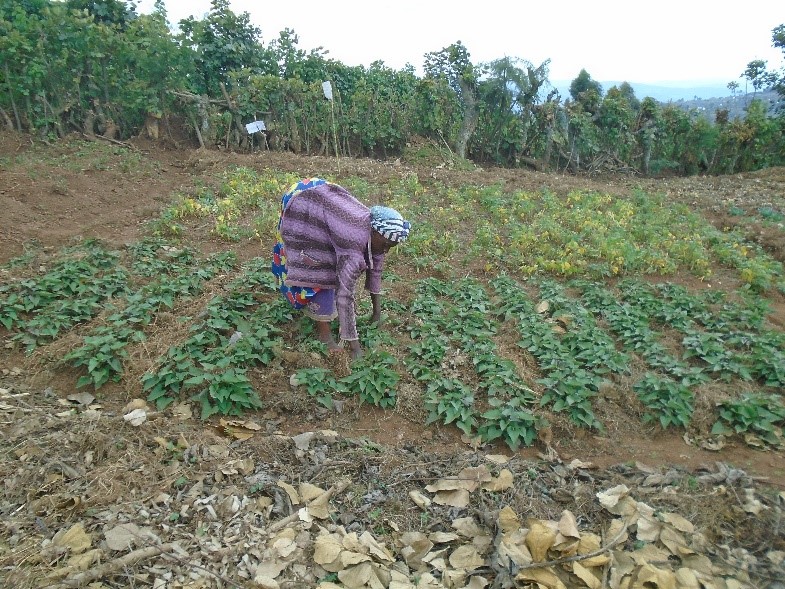
Spirits Lifted, Burdens Reduced
In the two years Violet has been practicing Conservation Agriculture she has experienced a huge change in the ratio of her workload and yields: less backbreaking work, and more profitable harvests.
Violet and her husband, Alfred, are great-grandparents who live on sloping land in an area where landslides are common. Soil fertility had become so abysmal that they would only get 18 lbs. of beans from 7 lbs. of seed sown on a quarter-acre plot, and cabbage and sorghum would barely form heads. Her vision deteriorated because of poor nutrition, her body ached from the overwhelming work of tilling and planting, and her spirits drooped from the futility.
“We’ve been farming for over 30 years but only harvested low yields because of poor agricultural methods. Then I was trained how to do Conservation Agriculture (minimum tillage, mulching, crop rotation) and good agronomic practices (proper spacing, pest and disease control, using manure as fertilizer, timely planting, and contouring the soil to stop erosion). As soon as we started doing Conservation Agriculture, our harvests have increased season after season. Conservation Agriculture now enables us to provide for our basic needs. Selling what we don’t use has finally let us get ahead.”
They joined a farmer group, and discovered that mulching conserves soil moisture and contributes organic matter, making the earth more crumbly and easier to dig into. And minimum tillage means a lot less labor! Growing, preparing and eating drought-tolerant amaranth was an “eye opener:” Violet’s eyesight has improved from the Vitamin A in this grain. It goes without saying they were sold on CA when they planted 2 lbs. of sorghum and harvested 176; 7 lbs. of beans yielded 155 lbs., and 110 lbs. of Irish potato produced 992 lbs.!
The family has been able to eat better and sell their excess produce to cover household expenses. They joined a Village Savings and Lending Association, and put away enough to allow Violet to buy a cow with her calf, providing milk for protein and manure for composting. Successive harvests enabled them to purchase goats and rabbits for meat and manure. And those drooping spirits? Soaring now.
Uganda Rubanda Program
Led by World Renew and Local Partner Pentecostal Assemblies of God Kigezi-Ankole Pastorate
